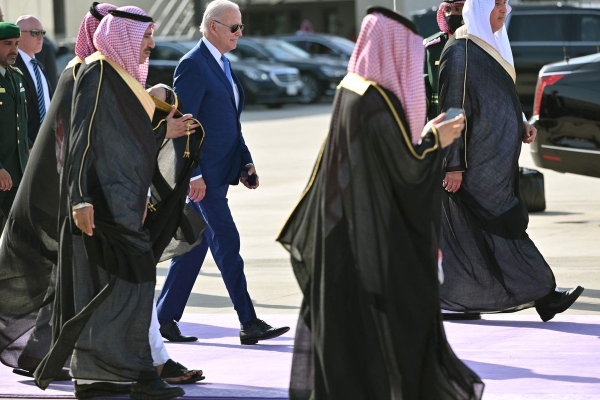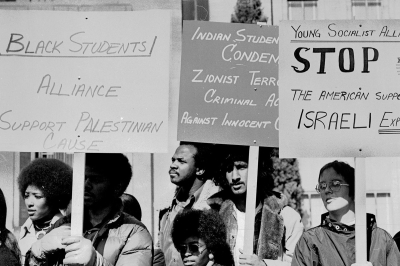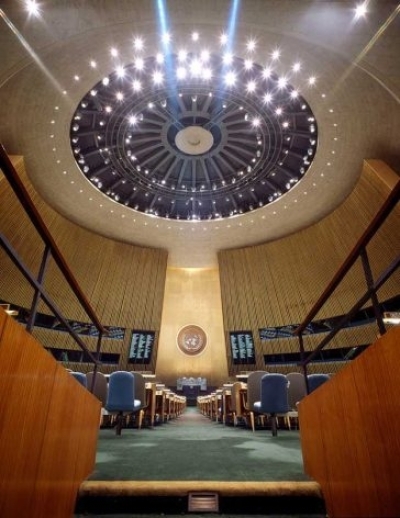President Joe Biden’s top foreign policy advisers have been shuttling to Saudi Arabia in recent months for a mission impossible: the normalization of diplomatic relations between the state of Israel and the Kingdom of Saudi Arabia.
The two countries have never had diplomatic relations. Until recently, most Arab states refused to have a relationship with Israel, objecting to the occupation of Palestinian land.
But the Biden administration is trying to formalize the fact that Israel and Saudi Arabia in recent years have quietly grown closer, in part due to their shared enmity for Iran’s Middle East influence and through less-public collaborations on technology and the military. And several other Arab states normalized relations with Israel under President Donald Trump’s Abraham Accords in 2020. Those transactional deals induced Arab states to make peace in return for the goodies they had sought from the US and Israel. The Biden administration initially distanced itself from that Trump policy but has since redoubled efforts, with Saudi Arabia as the prize.
Israel locking in ties with Saudi Arabia, home to the two holiest mosques in Islam and with incredible petro wealth, would be a breakthrough. But it’s also a long shot, and a seemingly bizarre priority for Team Biden to put such intensive political capital into.
Any new agreement would be detached from the current internal politics of both countries. Israel’s radical far-right government has already shown it prioritizes the annexation of Palestinian land, which would run headlong into the even minor concessions to Palestinians that Biden is reportedly seeking as part of the deal. Such a realignment would be unlikely to resonate among Saudis. Israel’s normalization deals with other Arab countries have been very unpopular.
And it likely would do little for Palestinians, unlike the much more ambitious goal then-Crown Prince Abdullah of Saudi Arabia put forward in 2002. The Arab Peace Initiative, as it was later called, held out a comprehensive peace agreement between Israel and Arab states. The establishment of an independent Palestinian state alongside Israel, based on United Nations resolutions, would come in exchange for Arab states’ recognition of Israel. The Arab League endorsed the unprecedented offer, but the government of Israel rejected it.
Trump’s 2020 accords with the United Arab Emirates, Morocco, and Bahrain, and today’s unlikely prospect of normalization with Saudi, however, represent a much different type of deal. Any arrangement the Biden administration secures would likely be smaller and bilateral (not comprehensive); in many senses, it would simply codify aspects of the already-booming backroom ties between Israel and Saudi Arabia. At best, it might offer some limited protections to Palestinians, while Saudi Arabia asks for significant carrots from the US. The scale of those asks — a NATO-esque security guarantee, high-tech weapons, and a civilian nuclear program — surpass the usefulness of the deal for American interests.
Which leads to the question: Whose interests would normalization serve? As Chas Freeman, a former US ambassador to Saudi Arabia, put it, “I don’t see what the US gets, except we pay a huge price.”
What Israel-Saudi normalization would mean
Since Biden’s 2022 visit to Saudi Arabia, the US has prioritized normalization. National security adviser Jake Sullivan traveled to the kingdom several times to meet with Crown Prince Mohammed bin Salman, who goes by MBS, and Secretary of State Antony Blinken visited recently, too.
“We have the interest and bandwidth to promote normalization between Israel and Saudi Arabia,” Sullivan said in May.
The normalization, as it is being discussed in Washington policy circles, would not feature the establishment of an independent Palestinian state. That departs from the 2002 Saudi-led Arab Peace Initiative, which centered on Israel ceasing its military occupation and adhering to international resolutions in exchange for peace with the countries of the Arab League.
Opinion polls have shown support plunging for the Abraham Accords in the Gulf. In the UAE and Bahrain respectively, according to the latest surveys, just 27% and 20% of respondents view them as positive for the region. That compares to 47% and 45% in 2020 https://t.co/LeY7YynpiG
— Abdulkhaleq Abdulla (@Abdulkhaleq_UAE) July 30, 2023
The Saudi-Israel deal wouldn’t be a just or comprehensive peace. While Blinken said this spring that any normalization “should advance the well-being of the Palestinian people,” it’s not clear what that means for Gaza, or whether there would be a settlement freeze or halt to policies in the occupied West Bank that amount to annexation. (Would the deal be worth it if it included those things? In 2020, Israel had pledged to stop its West Bank annexation plan as part of its normalization with the Emirates. Now, the current Israeli government has in essence returned to annexationist policies and strained Israel-UAE ties, so it’s difficult to imagine such a commitment making a difference today.)
And it seems less of a priority from at least part of the Saudi side too. King Salman has reportedly stood up for the importance of a Palestine component for normalization. But his son, MBS, who is the de facto ruler of the kingdom, does not appear to hold Palestine as central for these talks.
If a normalization deal isn’t primarily about Palestine, then what would it be about?
The US wants to pull Saudi Arabia, and the Middle East more broadly, away from China’s orbit. And that requires a projection of US diplomacy.
Israel has much to gain. Given Saudi Arabia’s international clout as the custodian of Mecca and Medina, Israel would also get remarkable buy-in from the Muslim world — all while continuing to downgrade the importance of Palestinian rights or a resolution to the Israel-Palestine conflict.
Saudi Arabia has reportedly asked for US support for a civilian nuclear program and a security guarantee from the US along the lines of NATO, as well as other sweeteners.
In particular, the Saudis want the military and intelligence technologies from Israel. Official trade between the two countries is low. But in 2017, Israel sold Saudi Arabia the notorious NSO Group spyware that can crack open phones, with Prime Minister Benjamin Netanyahu’s sign-off. Even after the murder of journalist Jamal Khashoggi at the hands of the Saudis, NSO Group continued to sell its technology to MBS. Normalization would significantly benefit Israel’s tech and arms industries, which seek to enter the Saudi market.
But that carries risks. “Countries in the Gulf are quite capable of doing business with Israel without a formal relationship,” Freeman, the retired career diplomat who served as ambassador to Saudi Arabia from 1990 to 1992, told me. But formalizing those ties would be immensely risky, with Saudi anger and dissatisfaction, possibly fomenting “a political convulsion” in protest, perhaps even “a revolution in Saudi Arabia,” according to Freeman.
Why is Biden doing this?
When it comes to Israel and Saudi Arabia, Sullivan has said that “ultimately getting to full normalization is a declared national security interest of the United States, we have been clear about that.” Blinken has said that Israel’s integration into the Arab Middle East would serve US interests and bring stability to the region.
Some experts disagree on this point. Harvard political scientist Stephen Walt argues that the deal would only serve Israel’s interests. Such an accord “would symbolize ... the ability of Israel to enjoy normal relations with neighboring states despite continuing its occupation and never resolving the Palestinian conflict,” former intelligence officer Paul Pillar writes. “The sole beneficiary of such symbolism is the right-wing government of Israel.”
China’s rising power in the world and its increasing influence in the Middle East may be a core reason for pursuing this deal. Biden’s entire approach to international security is focused on countering China, and that may be behind the impetus for formalizing relations and lining up two of the US’s most important Middle East partners. China recently worked to secure a deal between Saudi Arabia and Iran. The Biden administration may be prioritizing Israel-Saudi negotiations as a way for the US to reassert itself in the Middle East.
The economic aspect of the normalization push cannot be overstated. While Saudi Arabia and the US have a robust relationship — in the current credit crunch moment, the kingdom’s reach in Silicon Valley continues to expand, for example — the alignment of Chinese and Saudi interests, however, could affect the US economy. China has made economic inroads in the kingdom: It has sought to buy Saudi oil with its own currency, and thereby degrade the might of the US dollar.
The Biden administration may also want to vindicate the about-face of the president’s 2022 visit to Saudi Arabia after so strongly condemning MBS, says Dalia Dassa Kaye of UCLA’s Burkle Center for International Relations. “This normalization push really seems like a sideshow compared to global crises that we’re dealing with right now,” she told me. “They think it can really shake things up, and they could get some wins in a region that hasn’t given them any wins, if any, or very limited ones.”
And then there is the reality of bureaucratic inertia, that the Trump policy of normalization instead of advancing policies that secure Palestinian rights, seems ascendent. As Palestinian journalist Said Arikat noted in a recent press briefing, the State Department has an envoy for the normalization effort but not for Israel-Palestinian negotiations, a divergence from previous administrations which came in with more aspirational peace plans. In hindsight, the US-led Middle East peace process of the past three decades was hardly set for success and contained many flawed assumptions that reinforced Israel’s asymmetric power over Palestinians. Still, that process gave the US some leverage in the Middle East that it now misses.
And finally, the Biden administration perceives that clenching an Israel-Saudi deal would give it a major boost on the campaign trail. The US-led effort “has virtually nothing to do with foreign policy and everything to do with the presidential election,” says Freeman. Such a deal may alienate some progressive and left-wing voters in the Democratic camp, but it may also attract voters from the center and the right. Several analysts have argued that it would shore up donors for the Biden reelection campaign. Others note that, on the whole, Americans don’t tend to cast votes in response to foreign policy issues.
Left unsaid, according to Freeman, is that “the Saudis have absolutely no reason to do anything to help Biden get reelected.” That, combined with the internal political situations in Israel and Saudi Arabia, makes this deal particularly unlikely.
Yet even in these circumstances, there are already two clear winners.
Netanyahu, who is facing a corruption investigation and ongoing weekly mass protests against his extreme government’s policies, comes away looking reasonable. And MBS, in essence, has been further welcomed back into the establishment fold.
“MBS benefits from this dynamic,” Khalid Aljabri, a Saudi physician and political analyst based in Washington, DC, told me. “Because when you have a US administration that has a Middle East foreign policy that is singularly focused on normalizing relations between Saudi Arabia and Israel, it means that MBS can get away with everything else he does.
“MBS, for even the most minimal and minuscule gestures, is able to get maximal US concessions,” says Aljabri. “He has the Biden admin exactly where he wants them to be.”






